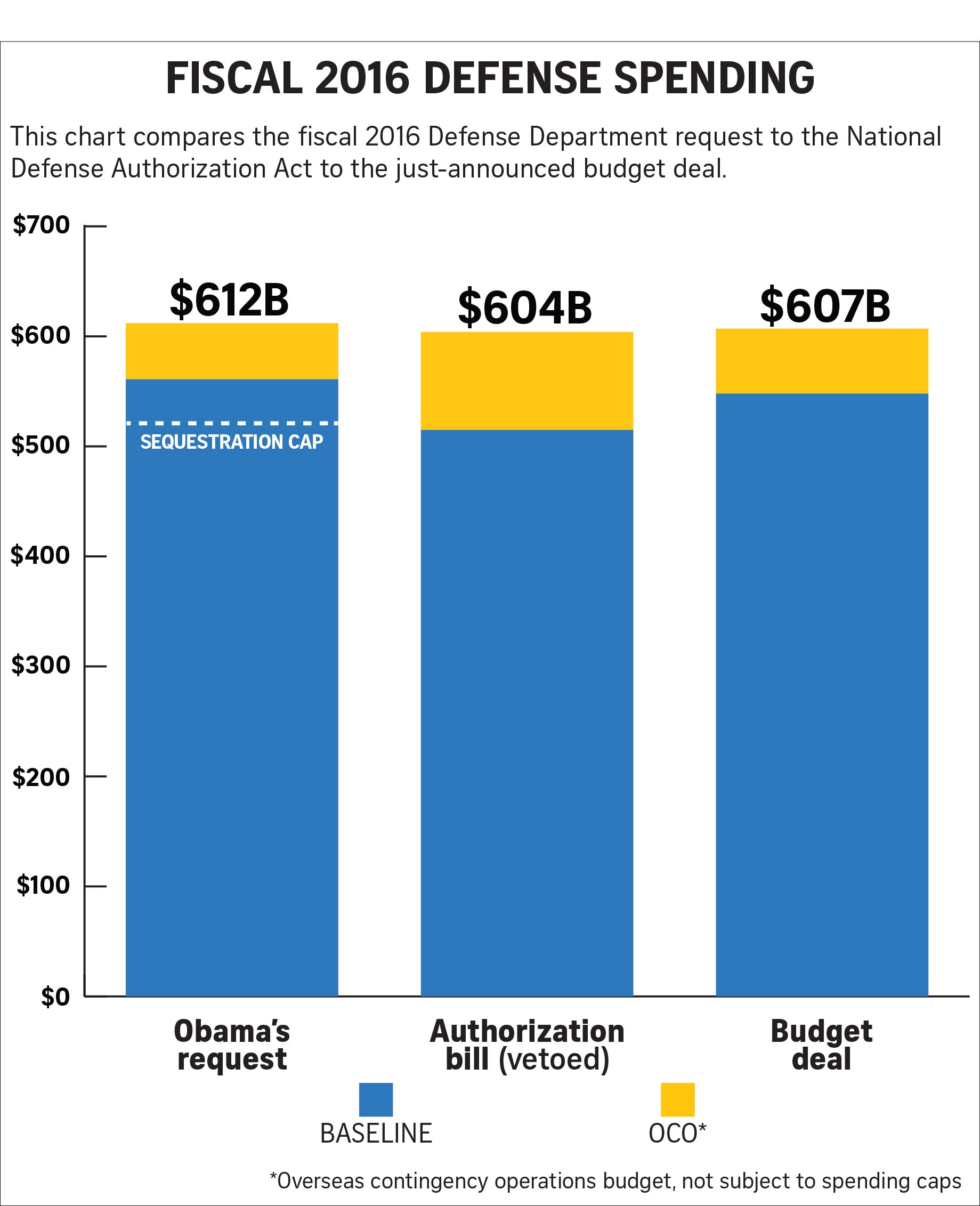The budget deal struck on Capitol Hill is good news for the Pentagon, analysts say, but will still leave the military about about $5 billion short of the president’s request for fiscal 2016.
If the deal passes and becomes law, it will also send lawmakers back to the drawing board on the annual defense authorization bill the president vetoed last week to redo it with a new top line that is $5 billion lower.
The deal, reached late Monday night, would cap defense spending at $607 billion, with $59 billion falling into an overseas contingency operations fund meant for war spending.

In addition to lifting spending caps across both defense and non-defense spending, the budget deal will also suspend the debt limit until March 2017, eliminating a major headache for Rep. Paul Ryan, who is expected to serve as the next speaker of the House.
In his fiscal 2016 request, President Obama asked for a $612 billion defense budget, including $51 billion in the war fund.
While it won’t quite meet the administration’s ask, the budget is a huge improvement over the $523 billion cap set under the Budget Control Act. The deal gives the Pentagon $84 billion more than if sequestration had been allowed to go back into effect.
Mackenzie Eaglen, a national security analyst at American Enterprise Institute, said the Pentagon has been preparing budgets in case a full-year continuing resolution required the department to operate at sequestration levels. As a result, officials should be prepared to suggest to Congress where $5 billion can be cut.
“The Pentagon definitely has a Chinese menu of places where it will suggest to Congress at the reduced levels,” she said. “It usually comes from procurement, that’s the easiest one to hit.”
Eaglen said the deal is “very good news” for the Pentagon. In addition to providing fiscal stability and avoiding a government shutdown or debt default for more than a year, the deal also puts more money in the base budget, which gives the Pentagon a chance to invest in innovation and the long-term readiness of the force, she said.
Defense Secretary Ash Carter criticized Republicans’ use of the war fund for spending that should be in the base budget because it doesn’t allow for year-to-year budgeting and planning and called the GOP budget “a road to nowhere” this year during testimony before the Senate Armed Services Committee.
The bill also provides about $3 billion more than the annual defense authorization bill that Obama vetoed last week over using the overseas contingency operation funding.

